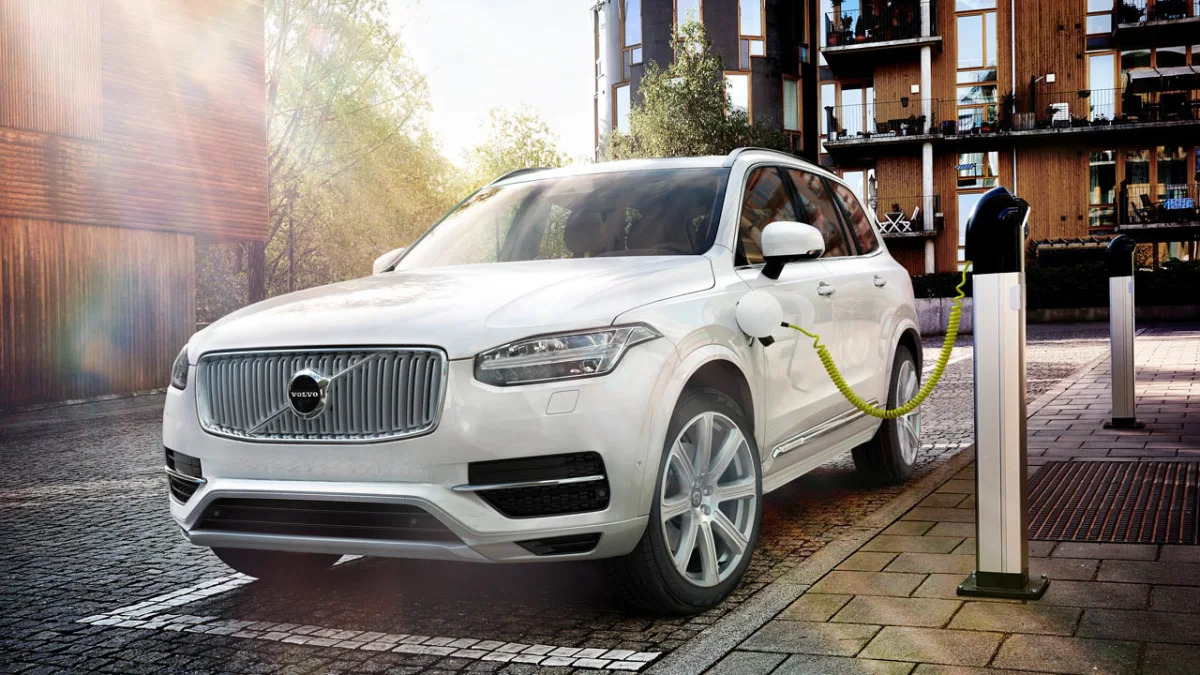LMC Automotive, formerly the forecasting division of J.D. Power & Associates, predicts that plug-in hybrids will sell better than conventional hybrids by 2019. By 2021, it envisions PHEV sales at 600,000 units yearly compared to 325,000 standard hybrid sales, and by 2024 PHEV sales are expected to account for 1.2 million sales every year.
Part of LMC's prediction is based on a few factors, such as that it believes "electric-only operation will come to be seen as a true luxury characteristic and will be prized sufficiently to command significant premiums." Certain PHEVs are helped in countries like the UK and The Netherlands by generous incentives or other perks, like avoiding inner London's congestion charge, that allow them to address their price differences compared to standard offerings. And the number of PHEVs on the market will soon eclipse regular hybrids, coming from makers across the spectrum.
Volvo has twice recently, and only belatedly, learned of the popularity of PHEVs: in 2013 it had to triple production of the V60 PHEV, and just this month it said demand for its XC90 PHEV is four times expectations. The Porsche Panamera E-Hybrid is outselling the traditional hybrid Panamera by more than seven-to-one. And then there's Mitsubishi Outlander PHEV, Europe's best-selling PHEV with 19,855 units, a volume more than three times larger than the second-best seller.
Although LMC sees hybrid growth slowing, they're still doing well. Toyota and Lexus build the top-five selling traditional hybrids in Europe, combining for 72 percent of European sales, with the new Auris and Yaris hybrids alone selling 123,506 units in 2014. For LMC's forecast to come true, Europe will need a spectacular change in buying habits, since the top ten conventional hybrids tallied 175,847 sales in 2014, and the top ten PHEVs rang up 36,138 sales.
Part of LMC's prediction is based on a few factors, such as that it believes "electric-only operation will come to be seen as a true luxury characteristic and will be prized sufficiently to command significant premiums." Certain PHEVs are helped in countries like the UK and The Netherlands by generous incentives or other perks, like avoiding inner London's congestion charge, that allow them to address their price differences compared to standard offerings. And the number of PHEVs on the market will soon eclipse regular hybrids, coming from makers across the spectrum.
Volvo has twice recently, and only belatedly, learned of the popularity of PHEVs: in 2013 it had to triple production of the V60 PHEV, and just this month it said demand for its XC90 PHEV is four times expectations. The Porsche Panamera E-Hybrid is outselling the traditional hybrid Panamera by more than seven-to-one. And then there's Mitsubishi Outlander PHEV, Europe's best-selling PHEV with 19,855 units, a volume more than three times larger than the second-best seller.
Although LMC sees hybrid growth slowing, they're still doing well. Toyota and Lexus build the top-five selling traditional hybrids in Europe, combining for 72 percent of European sales, with the new Auris and Yaris hybrids alone selling 123,506 units in 2014. For LMC's forecast to come true, Europe will need a spectacular change in buying habits, since the top ten conventional hybrids tallied 175,847 sales in 2014, and the top ten PHEVs rang up 36,138 sales.










Sign in to post
Please sign in to leave a comment.
Continue